Welcome Back Home, Water.
Giulia Del Gobbo, Manami Taniuchi, Fabien Nelsius
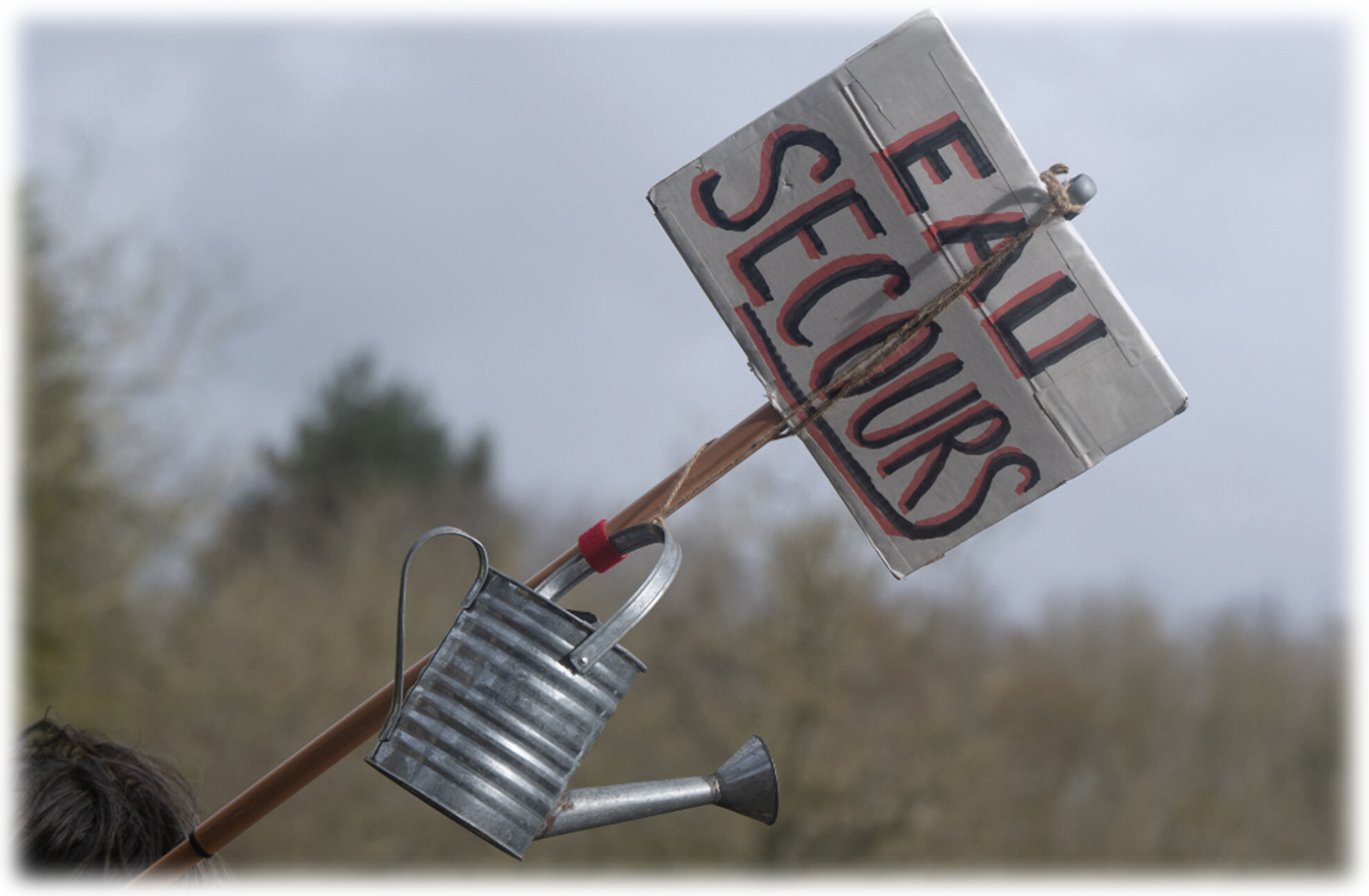
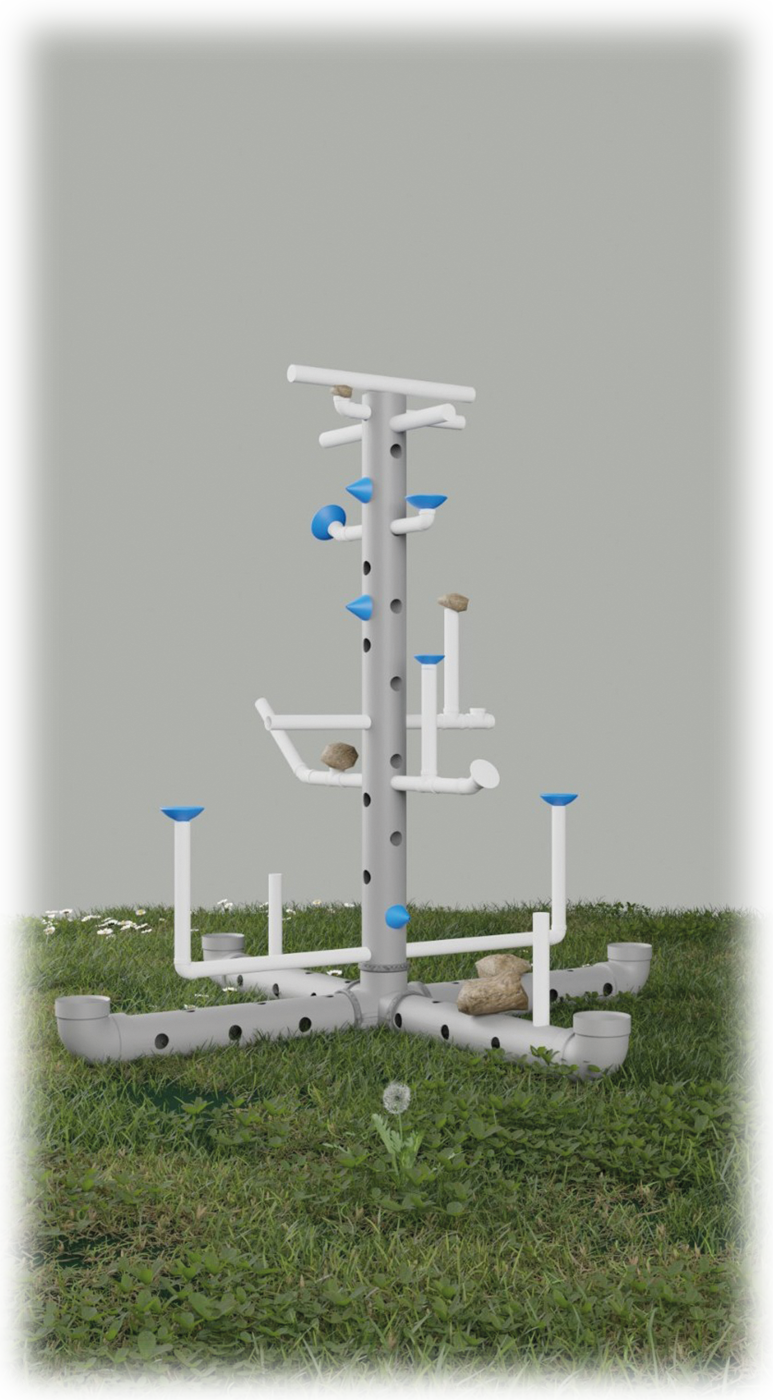
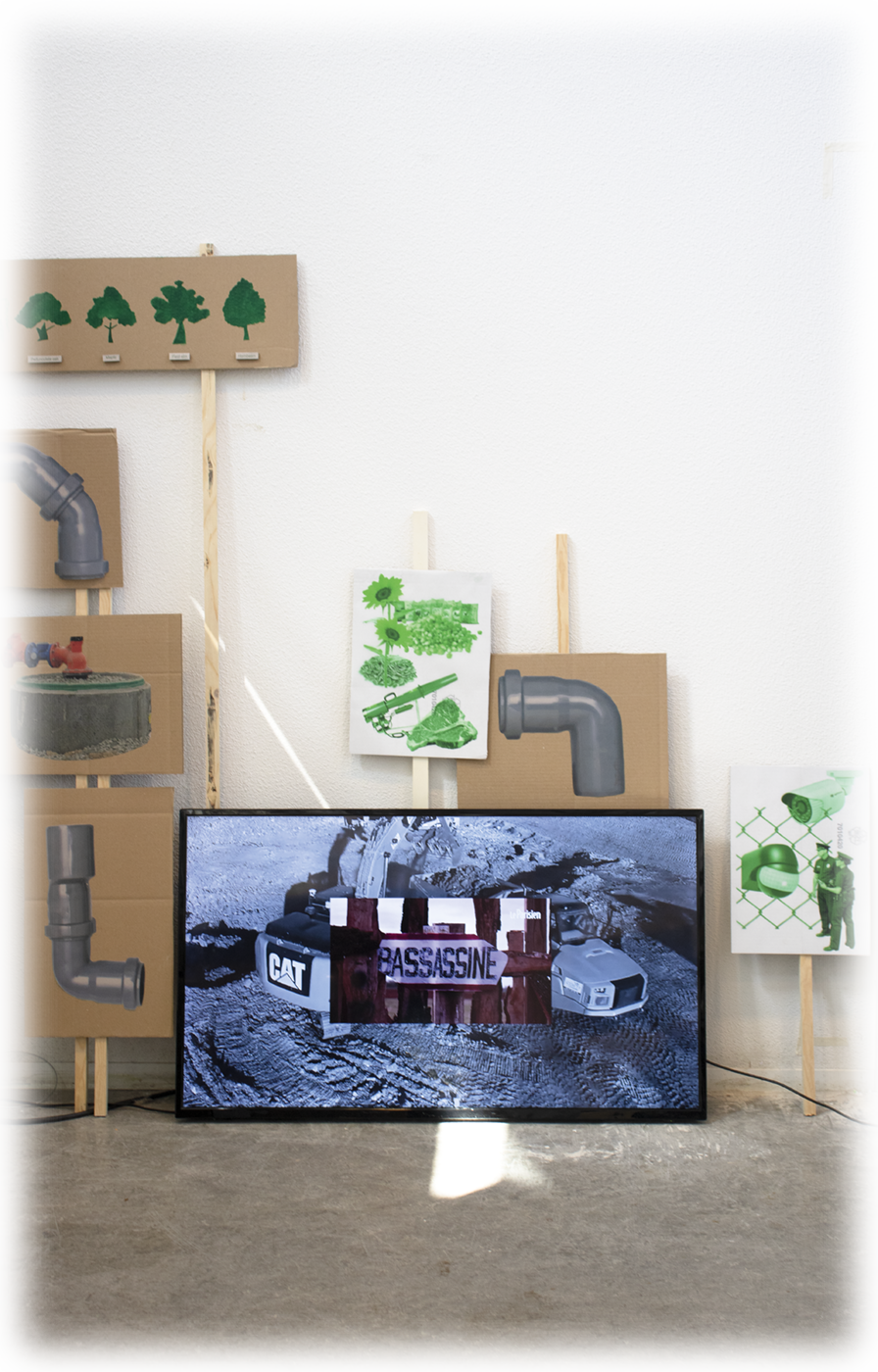
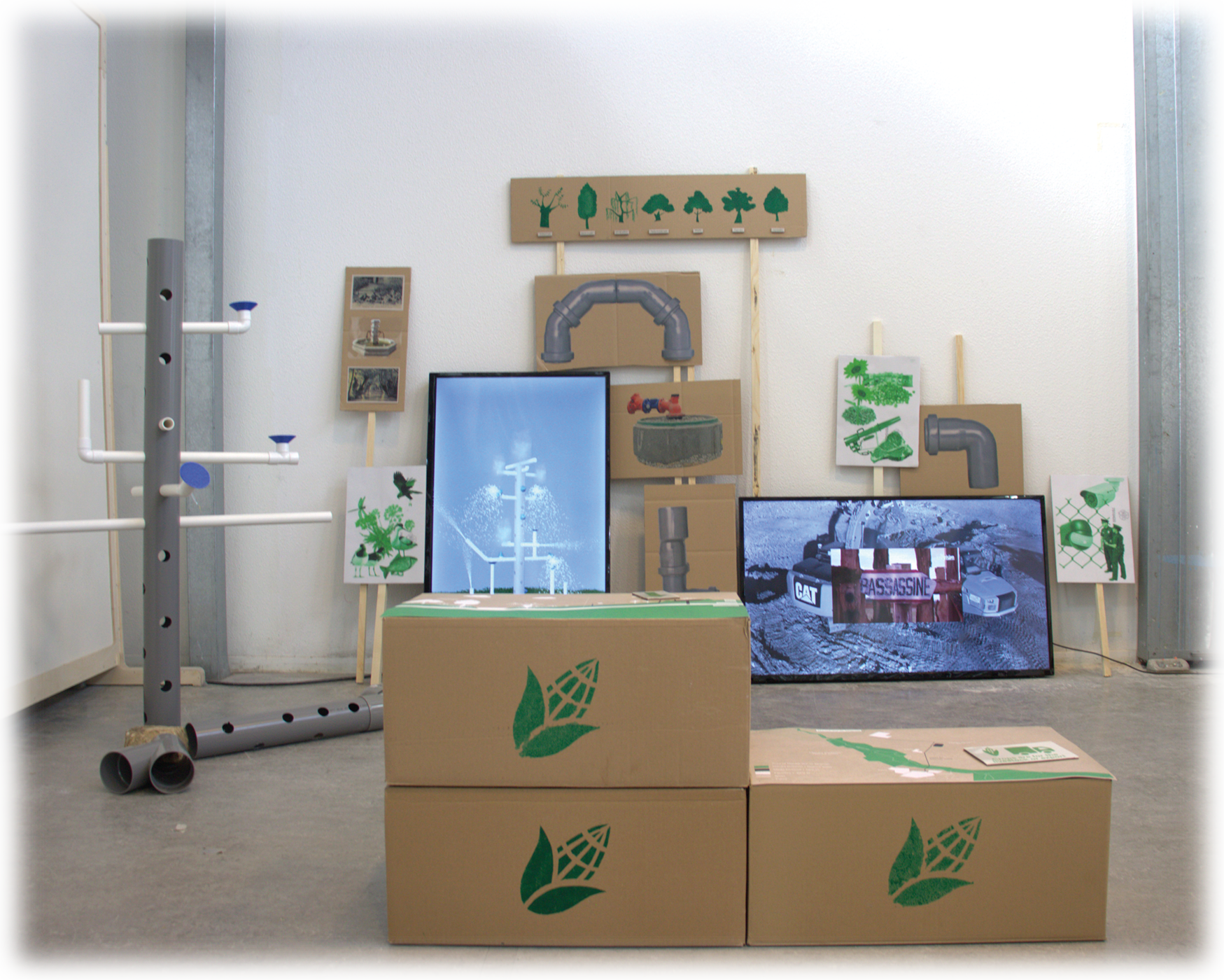
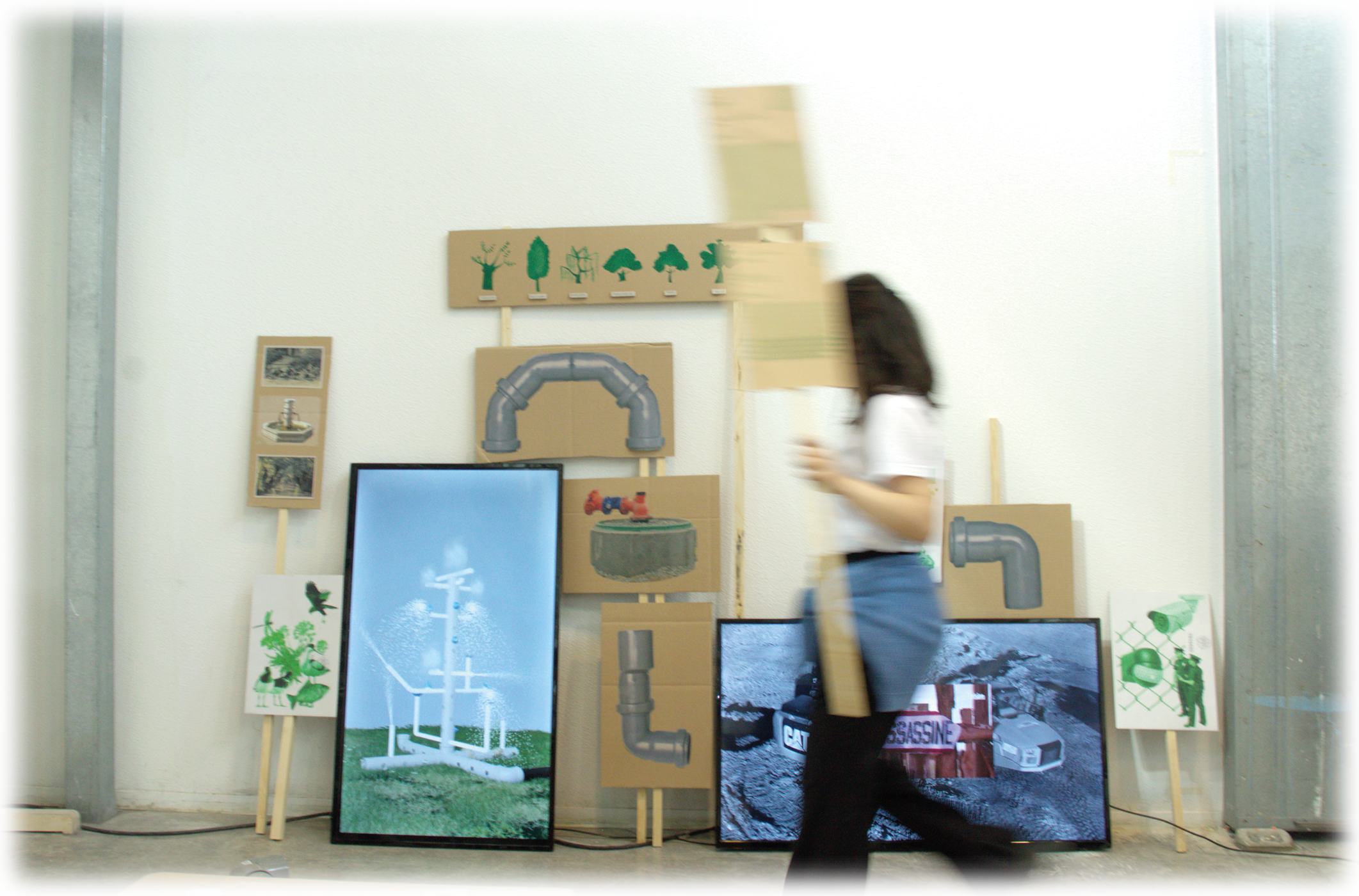
In Mauzé-sur-le-Mignon, a city in western France near the marshlands of Marais Poitevin, lies the protected area Natura 2000. Just one kilometre away, the government is working on the construction of Mega Bassine SEV17, a massive water basin for irrigation. This project, of which 70% is government-funded, only benefits twelve big corn farmers who export their crops for intensive meat production. Bassine SEV17, whose size equals 95 conventional reservoirs, has a watertight covering which blocks the circulation of water. Instead, it draws groundwater from the surrounding soil through a series of pipes, leading to water scarcity, evaporation, and pesticide pollution. The pipes cross the marshlands to reach water-intensive cornfields and lead to a degradation in soil quality due to monoculture. These marshlands are valuable reservoirs in and of themselves as they regulate precipitation and provide drinking water, making them essential for many species. However, the government will move forward with the construction of the megabasin despite its negative impacts and the violent protests it has sparked.


In this scenario, we propose a speculative solution: becoming part of the 6% of farmers with access to the megabasin by creating our own agricultural company. This company will cultivate six different tree species in the marshland, thus opposing monoculture, providing habitats for local species, and preserving water circulation, soil quality, and an already fragile ecosystem. We intend on pumping water from Mega Bassine SEV17 back into the Marais Poitevin through an unconventionally-designed fountain that uses industrial pipes from the basin, smaller pipes used in agriculture, and local limestone. This fountain serves as a metaphorical deconstruction of the current infrastructure and aims to re-introduce water back to its natural cycle whilst promoting democratic water management and educating about ecosystem dynamics. Our goal is to raise awareness and provoke critical thinking around the flawed system of megabasins. We want to be active participants, to subvert existing dynamics, and inspire a new approach towards the accessibility, privatisation, and circulation of water.